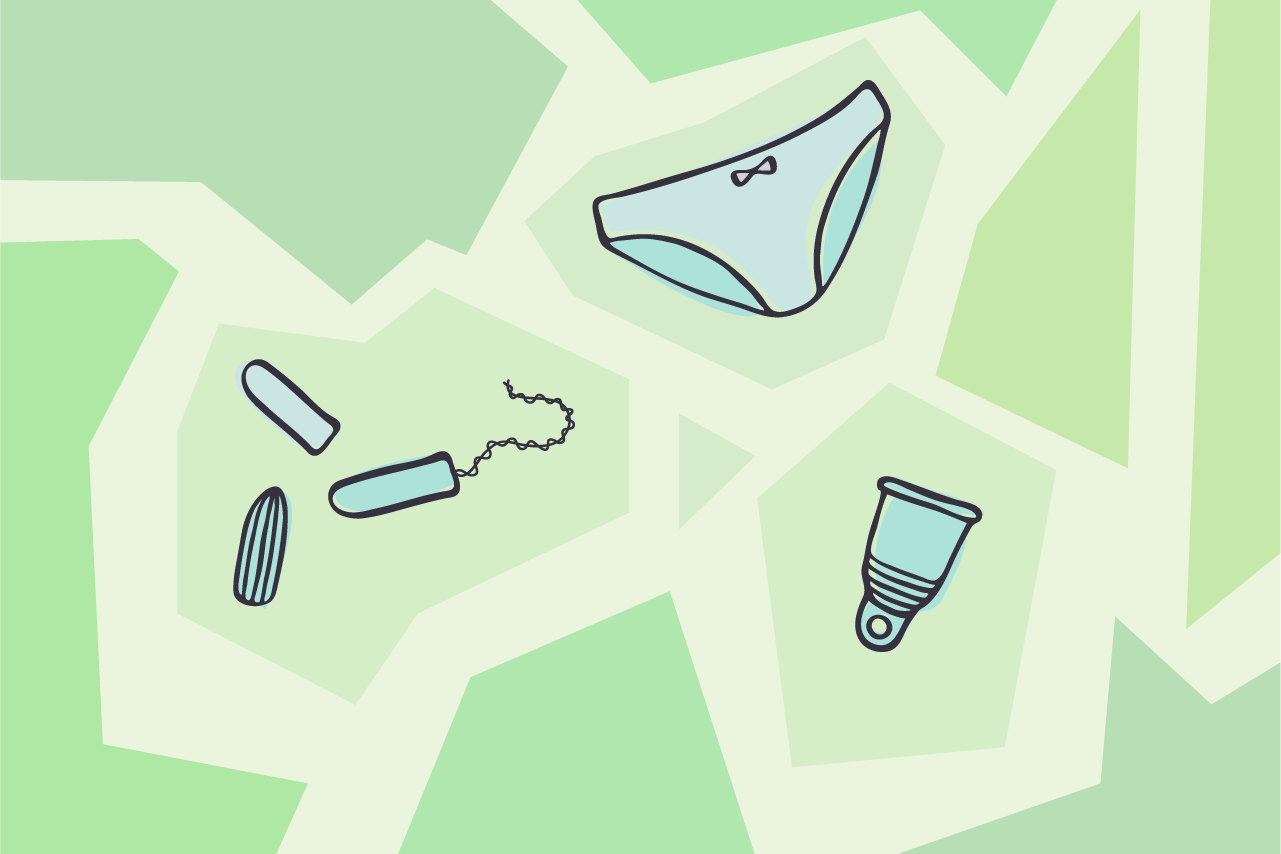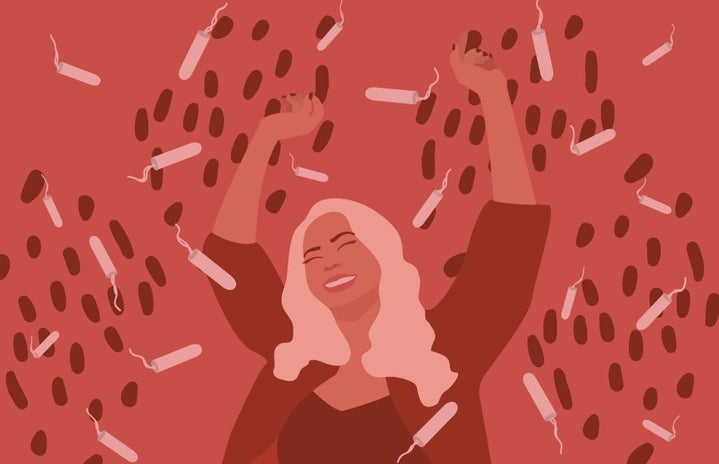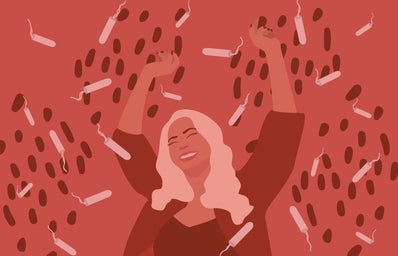Yakira Valerio used the slogan “Anything you can do, I can do bleeding” for her exhibition that provided education and healthy conversation around menstrual cycles. This quote is a truthful statement for people with periods, but only to those with access to the resources needed to protect them while bleeding.
There are over 7 billion people in this world, and nearly half of them menstruate. Yet the overall topic of someone’s period is, more often than not, seen as a shameful subject. When would be a more appropriate time to talk about periods than Women’s History month?
The truth is, I think my first couple of periods would have gone more smoothly if I was more comfortable discussing it. However, when given the talk in fourth grade, it was not exactly encouraged to be talked about amongst my peers. We were told to come up with a code word if we were to discuss our time of the month and taught how to hide pads and tampons up our sleeves so no one would see.
Now I get why they taught us these tips, it was to protect us from embarrassment in front of our classmates (mostly our male classmates). But why we should be embarrassed at all? This should be a topic of conversation.
I will continue to say this until it rings true to all ears, periods are nothing to be embarrassed about. They are not a shameful topic of discussion nor should one feel embarrassed if they have to carry a pad or tampon through the school hallways.
However, concealing a period product up their sleeve is just a small portion of the global picture surrounding a menstrual cycle. According to the World Bank, it is estimated that 500 million people lack access to adequate menstrual products and facilities to maintain proper menstrual hygiene.
Breaking this down further, a study done by UNICEF found that one in three women in South Asia did not even know of menstruation before their first period, and 48% of girls in Iran thought it was a disease. The World Health Organization found that one in 10 African girls do not attend school during the week of their period.
The statistics surrounding period poverty and period inequity go on and on. While it is often thought of as a problem within developing nations (which it is), period inequity is also faced in the United States.
A study done by Harris Insights & Analytics found that one in five American girls miss school due to lack of access to period products. Also, according to a study commissioned by Thix & Period, an average of one in four girls have had to miss a class due to the problem. Girls should not have to sacrifice part of their education because they cannot afford a tampon.
What can the average person do about this dilemma? How can an ordinary citizen contribute to solving period inequities?

To start, simply talking about periods in an open and non-shameful manner. Changing the dialogue around menstruation will not only make talking about it become more normal but it also leaves room for further discussion around menstrual health related issues and period inequities.
Donating unused or unwanted period products to local women’s shelters and local schools to be distributed to those who cannot afford period products on a monthly basis can help. You can petition your school board to make period products available in the school bathroom free of charge so students in need do not have to go to the nurse to ask for them (if the nurse is able to provide them).
If you have a job or are a small business owner, talk to your human resources department about becoming a Period Positive Workplace. The process to apply is quite simple and the main requirement is to have period products available to employees whether they are free or to be purchased. Having period products available in a workplace is important because workplaces that provide period products report reduced absenteeism, increased productivity and high collaboration from employees who menstruate.
Countries such as Scotland and New Zealand are now providing free menstrual products to their citizens and school-aged menstruators to ensure equity and dignity amongst its population.
How can we make this a reality for the United States where over half of the population menstruates? It all starts with you talking to your local, state and federal politicians to disclose our concerns and work towards an equitable future.
On a global scale, you can help menstruators globally by getting involved in organizations such as Days for Girls, The Pad Project, and Share The Dignity to name a few.
Period poverty and period equity is a solvable problem. Let’s break the cycle of silence and stigma surrounding menstruation. By starting conversations, taking action in our communities and advocating for policy changes, we can ensure that everyone who menstruates has access to the resources they need to manage their periods with dignity and confidence.
Periods are a natural and inevitable part of life, and it’s time we treated them that way.


